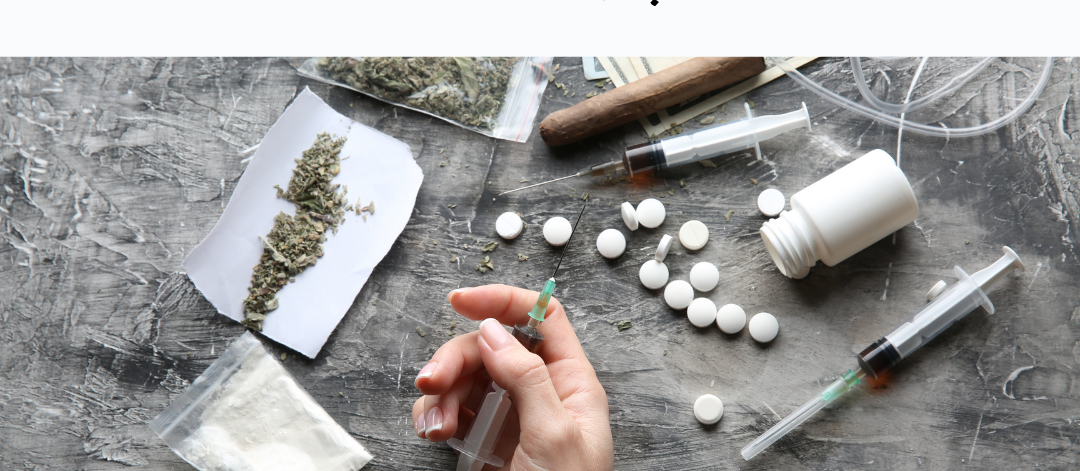Drug addiction is a widespread issue that impacts millions of lives globally. It not only affects individuals but also disrupts families, communities, and workplaces. However, recovery is achievable with the right drug addiction treatment tailored to the needs of the individual. This blog will explore the various aspects of drug addiction treatment and how it paves the way for a healthier, addiction-free life.
What Is Drug Addiction Treatment?
Drug addiction treatment is a structured process designed to help individuals overcome their dependency on drugs. It involves a combination of medical care, psychological support, and behavioral therapy to address the physical and emotional aspects of addiction. The goal is not just to stop drug use but to equip individuals with the tools needed for long-term recovery.
Key Components of Effective Drug Addiction Treatment
- Detoxification
Detox is often the first step in drug addiction treatment. This process eliminates the harmful substances from the body while managing withdrawal symptoms. Detoxification should always be conducted under medical supervision to ensure safety and comfort. - Behavioral Therapy
Behavioral therapy addresses the psychological triggers behind drug use. Techniques such as Cognitive Behavioral Therapy (CBT) help individuals recognize and modify harmful thought patterns, making it easier to resist cravings and avoid relapse. - Medication-Assisted Treatment (MAT)
In some cases, medications are used alongside therapy to manage withdrawal symptoms and reduce cravings. MAT is particularly effective for treating opioid and alcohol addiction. - Counseling and Support Groups
One-on-one counseling and group therapy sessions provide emotional support and allow individuals to share experiences. Programs like Narcotics Anonymous (NA) create a sense of community, making recovery less isolating. - Rehabilitation Programs
Rehab centers offer comprehensive care in a structured environment. Both inpatient and outpatient programs are available, depending on the severity of the addiction. These programs focus on skill-building, coping mechanisms, and relapse prevention.
The Importance of Individualized Treatment
No two individuals experience addiction the same way. Effective drug addiction treatment requires personalized plans tailored to the individual’s specific needs, including the type of substance abused, the duration of addiction, and underlying mental health conditions.
Steps to Start Drug Addiction Treatment
- Acknowledge the Problem
The first and most crucial step is recognizing the addiction and the need for help. This step often involves family intervention or self-realization. - Seek Professional Help
Contacting a trusted addiction recovery center is vital for assessing the severity of the addiction and developing a treatment plan. - Commit to the Process
Recovery requires dedication and patience. It’s essential to stay committed to the treatment plan and actively participate in therapy sessions. - Focus on Aftercare
Recovery doesn’t end with the completion of a program. Aftercare, such as continued therapy and support group meetings, plays a significant role in maintaining long-term sobriety.
Benefits of Drug Addiction Treatment
- Improved Health: Eliminating drugs from your system allows the body to heal, improving overall health.
- Emotional Stability: Therapy helps individuals manage emotions, reducing anxiety and depression.
- Better Relationships: Rebuilding trust with loved ones becomes possible as sobriety is achieved.
- Increased Productivity: With a clear mind and healthier habits, individuals can focus on career and personal growth.
Why Early Treatment Matters
The longer addiction persists, the harder it becomes to break free. Early intervention can prevent severe health complications, financial losses, and strained relationships.
Choosing the Right Recovery Center
Selecting a reputable recovery center is key to successful treatment. Look for centers that offer a combination of medical care, therapy, and aftercare support.
Final Thoughts
Drug addiction treatment is a life-changing process that requires courage, commitment, and professional support. While the journey may be challenging, the reward—a healthy, fulfilling, and addiction-free life—is worth every effort.
If you or someone you know is struggling with addiction, take the first step today. Help is available, and recovery is possible with the right treatment plan.
By following this guide, individuals can understand the importance of seeking help and how effective treatment can lead to a brighter, drug-free future.
4oDrug addiction is a widespread issue that impacts millions of lives globally. It not only affects individuals but also disrupts families, communities, and workplaces. However, recovery is achievable with the right drug addiction treatment tailored to the needs of the individual. This blog will explore the various aspects of drug addiction treatment and how it paves the way for a healthier, addiction-free life.
What Is Drug Addiction Treatment?
Drug addiction treatment is a structured process designed to help individuals overcome their dependency on drugs. It involves a combination of medical care, psychological support, and behavioral therapy to address the physical and emotional aspects of addiction. The goal is not just to stop drug use but to equip individuals with the tools needed for long-term recovery.
Key Components of Effective Drug Addiction Treatment
- Detoxification
Detox is often the first step in drug addiction treatment. This process eliminates the harmful substances from the body while managing withdrawal symptoms. Detoxification should always be conducted under medical supervision to ensure safety and comfort. - Behavioral Therapy
Behavioral therapy addresses the psychological triggers behind drug use. Techniques such as Cognitive Behavioral Therapy (CBT) help individuals recognize and modify harmful thought patterns, making it easier to resist cravings and avoid relapse. - Medication-Assisted Treatment (MAT)
In some cases, medications are used alongside therapy to manage withdrawal symptoms and reduce cravings. MAT is particularly effective for treating opioid and alcohol addiction. - Counseling and Support Groups
One-on-one counseling and group therapy sessions provide emotional support and allow individuals to share experiences. Programs like Narcotics Anonymous (NA) create a sense of community, making recovery less isolating. - Rehabilitation Programs
Rehab centers offer comprehensive care in a structured environment. Both inpatient and outpatient programs are available, depending on the severity of the addiction. These programs focus on skill-building, coping mechanisms, and relapse prevention.
The Importance of Individualized Treatment
No two individuals experience addiction the same way. Effective drug addiction treatment requires personalized plans tailored to the individual’s specific needs, including the type of substance abused, the duration of addiction, and underlying mental health conditions.
Steps to Start Drug Addiction Treatment
- Acknowledge the Problem
The first and most crucial step is recognizing the addiction and the need for help. This step often involves family intervention or self-realization. - Seek Professional Help
Contacting a trusted addiction recovery center is vital for assessing the severity of the addiction and developing a treatment plan. - Commit to the Process
Recovery requires dedication and patience. It’s essential to stay committed to the treatment plan and actively participate in therapy sessions. - Focus on Aftercare
Recovery doesn’t end with the completion of a program. Aftercare, such as continued therapy and support group meetings, plays a significant role in maintaining long-term sobriety.
Benefits of Drug Addiction Treatment
- Improved Health: Eliminating drugs from your system allows the body to heal, improving overall health.
- Emotional Stability: Therapy helps individuals manage emotions, reducing anxiety and depression.
- Better Relationships: Rebuilding trust with loved ones becomes possible as sobriety is achieved.
- Increased Productivity: With a clear mind and healthier habits, individuals can focus on career and personal growth.
Why Early Treatment Matters
The longer addiction persists, the harder it becomes to break free. Early intervention can prevent severe health complications, financial losses, and strained relationships.
Choosing the Right Recovery Center
Selecting a reputable recovery center is key to successful treatment. Look for centers that offer a combination of medical care, therapy, and aftercare support.



